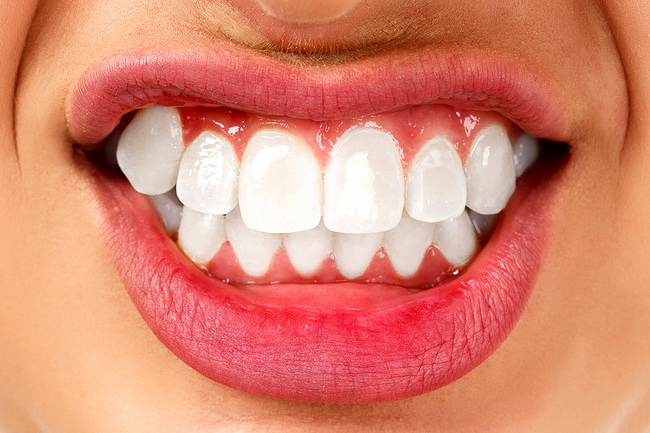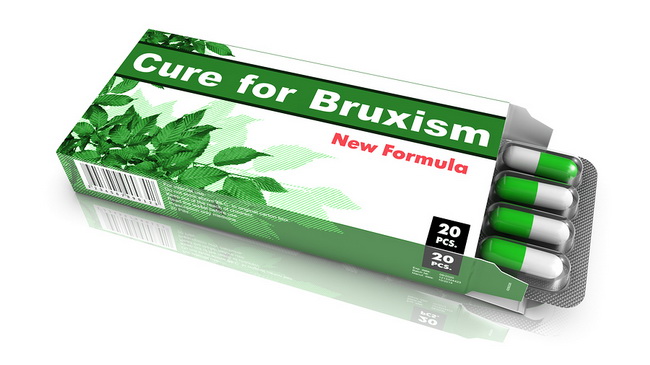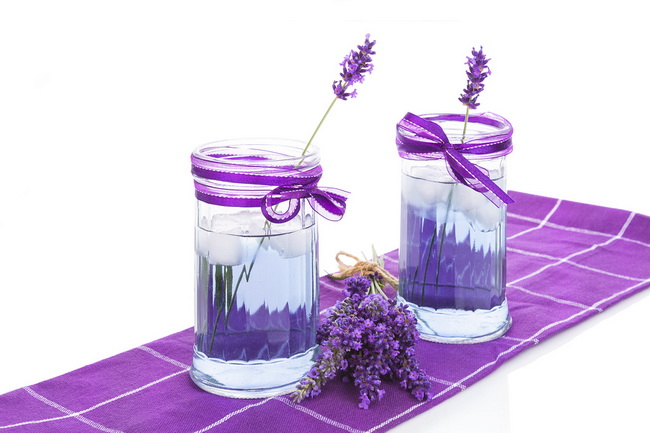- Make It Yourself Lavender Heart-Shaped Bath Bombs!
- 20 Things You Never Knew About “Down There”
- 12 Best Foods For Those Suffering From Arthritis Pain
- 12 Personal Hygiene Mistakes Almost Everyone Makes (Mom Never Told You About #4!)
- 15 Medicinal Plants And Herbs From The Cherokee People
- 12 Mind-Blowing Benefits Of Drinking Coconut Water During Pregnancy
- 12 Outstanding Winter Foods That Won’t Fatten You Up Like A Christmas Turkey
12 Ways To Stop Doing This Every Night (And We Don’t Mean Snoring!)

Photo credit: bigstock.com
Unless you sleep with someone, you might have bruxism and not even know it. What is bruxism? It’s the medical term for people who grind their teeth at night while they sleep, and for some people, even during the day.
This is perhaps one of the most damaging dental disorders and is quite common, even though many people are unaware of it. Grinding your teeth is like putting 1,200 pounds of pressure on your teeth, the muscles around the jaw, and other muscles and tissue involving the jaws, gums, and teeth.
Grinding your teeth often leads to jaw and dental disorders, including earaches, broken or cracked teeth, jaw joint disorders, and even TMJ (Temporomandibular joint dysfunction).
Sometimes the cause of teeth grinding is due to diseases such as Huntington’s or Parkinson’s disease. Other times, it is due to stress, misaligned teeth, suppressed feelings of frustration, resentment, and anger, or even a certain type of parasitic infestation! It is quite common among those who suffer from fibromyalgia.
Most people become aware of this problem because someone tells them about it or because they begin to experience dental pain, pain in the jaw, and/or headaches. Many people go to the dentist for a cracked or broken tooth and find out they are grinding their teeth at night.
There are plenty of natural ways that you can deal with bruxism. Take a look at the top 12 ways you can deal with teeth grinding.
Continue to Page 2

Photo credit: bigstock.com
1. Change Your Medication
There are some antidepressants and other types of psychiatric medications that tend to cause teeth grinding or clenching of the jaw. If you are taking any type of prescription medication for mental or emotional issues, speak to your doctor about possibly changing your medication.
2. Warm Compress
Heat can help to relax the muscles of the jaw or the mouth. You can try applying moist heat around the jaw to help prevent teeth grinding. You can take a warm bath, being sure to submerge your jaw for at least a few minutes, or you can simply soak a washcloth in hot water and then wring out the excess. Hold the warm, moist towel over your jaw area for five to 10 minutes to help to relax the jaw muscles before bedtime and again in the morning to relax any tightness.
3. Mouth Guards
Night guards or mouth guards are available in every sporting goods store and more pharmacies. These are simple silicone or plastic mouthpieces that fit between the teeth and prevent you from completely closing your mouth and grinding your teeth. The mouth guards sold in these stores are one size fits most, and they might not work for you. You might want to consider having your dentist create a custom one that fits your mouth perfectly. This is a more expensive option, but it can be well worth the investment.
4. Massage
A gentle massage of the jaw, shoulders, neck, and face for a few minutes several times each day, and again before bedtime, can help to relax the tension in the jaw muscles. This can help reduce pain and jaw clenching. Many massage therapists offer a full body, stress management massage that can help to relieve tension, which is one of main causes of bruxism.
Continue to Page 3

Photo credit: bigstock.com
5. Perform The Scream
This stretch, often called the screaming stretch, can relieve tension and retrain your mouth to help alleviate the symptoms of jaw clenching. To perform this stretch, open your mouth as wide as possible while sticking out your tongue as far as you can. Hold this position for 30 seconds, then release. If you wish to scream, go ahead — but it isn’t necessary. Perform this stretch as often as you wish. This position will stretch the muscles and helps reposition the jaw joint.
6. Valerian
This herbal tea has muscle relaxing compounds that can help you relax at night. When you are relaxed, chances are greatly reduced that you will grind your teeth. Drink valerian tea each night about an hour before bedtime. You can also add four drops of valerian essential oil to one teaspoon of olive oil or coconut oil and massage this mixture into the jaw area each night before bedtime.
7. Exercise
So many people discount the benefits of exercise and think that it only benefits the heart. Studies show that regular exercise, a minimum of three times a week for 30 minutes at a time, reduces stress and relaxes the body. Exercise also improves the immune system, which strengthens your ability to deal with stress. Try taking a walk after dinner, go swimming, or any other type of exercise that you enjoy and that you are most likely to continue doing.
8. Lavender
This is a sweet-smelling solution to this problem. Lavender is full of bioactive constituents that induce feelings of relaxation and help you to sleep better. Mix three drops of lavender essential oil with one teaspoon of coconut oil or olive oil and massage this mixture into your jaw and neck area each night before bedtime. You can also put three or four drops of lavender oil on a cotton ball and tuck it into your pillow to help induce a deep, relaxing sleep.
Continue to Page 4

Photo credit: bigstock.com
9. Deep Breathing
Many people find that practicing deep breathing exercises prevents teeth grinding. Practice these exercises just before bed to help relax the body. The more relaxed you are, the less likely the chance is that you are going to grind your teeth in your sleep.
10. Herbal Tea
Herbal teas are a terrific way to relax before going to bed. Going to bed when you are feeling tense or stressed out will affect your sleep. Feeling warm and relaxed from the inside will mean that it is much less likely that you will grind your teeth. Many herbal teas also have sedative and relaxing properties to encourage deeper sleep and relax the muscles. Chamomile tea is the all-time favorite for this purpose, but green tea and passion flower tea work equally well.
SEE ALSO: Top Ways to Stop Snoring Naturally; No Machines, No Surgery, No Drugs
11. Supplements
Sometimes, teeth grinding is due to a magnesium or calcium deficiency. Both of these minerals are important for the proper functioning of the muscles and the central nervous system. Calcium and magnesium also support healthy teeth, which will help keep your teeth strong if you do grind them. One of the many symptoms of a deficiency in these vital minerals can cause muscle spasms, feelings of tension, cramps, and clenching of the muscles, including the jaw. Try consuming a powdered calcium and magnesium supplement in a two to one ratio every day. You can start with 600 mgs of calcium and 30 mgs of magnesium then gradually increase the dosage until you are taking 1,000 mgs of calcium and 600 mgs of magnesium. These types of powdered supplements are easier for the body to absorb. You can add them to almost any type of fruit juice or smoothie.
12. Turmeric And Milk
Turmeric, when mixed with milk, can also go a long way toward helping control the problem of grinding your teeth. Milk contains tryptophan, an amino acid that helps the body relax and sleep better. Turmeric will help relieve pain and stop inflammation. Milk also contains calcium, which is important for strong teeth. Mix one teaspoon of turmeric powder in one glass of warm milk. You can add a tablespoon of raw, organic honey if you find the taste a bit strong. Drink this each night, about 30 minutes before bedtime.
References:
































